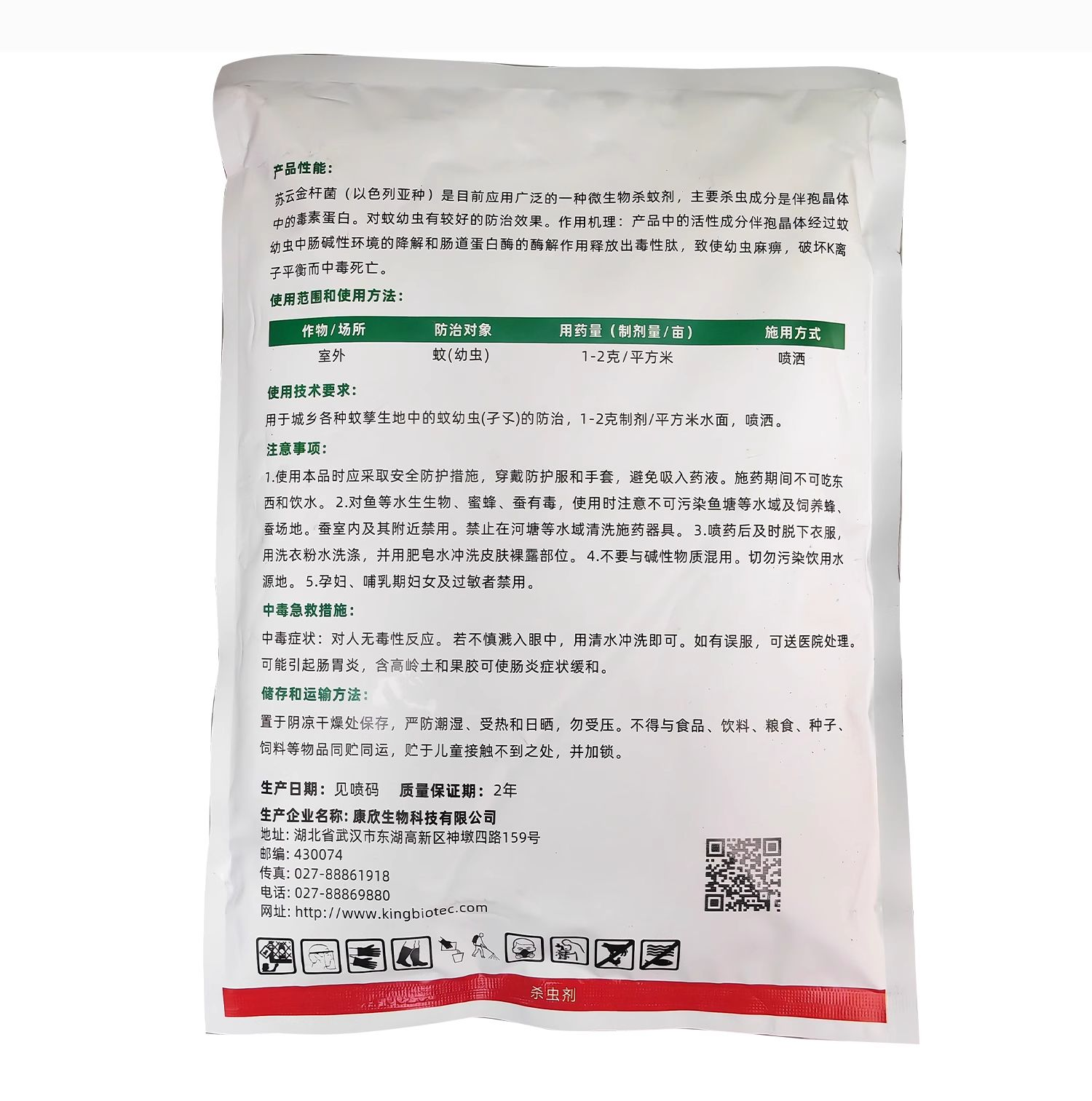杀蛾蠓和小飞虫最好用什么成分?
消灭蛾蠓和小飞虫,最有效且相对安全的成分通常是拟除虫菊酯类杀虫剂。以下是详细分析和推荐:
🧪 1. 最推荐的核心成分:拟除虫菊酯类
- 常见有效成分: 氯菊酯、胺菊酯、氯氰菊酯、溴氰菊酯、高效氯氟氰菊酯等。
- 优点:
- 高效广谱: 对蛾蠓、小飞虫(果蝇、蚤蝇等)、蚊子、苍蝇等多种飞行和爬行昆虫都有很好的触杀和击倒效果。
- 低毒(相对): 相较于有机磷类等老式杀虫剂,菊酯类对哺乳动物的毒性较低,在正确使用下相对安全。
- 作用迅速: 接触后能快速击倒害虫。
- 有一定滞留性: 喷洒在表面后能维持一段时间的药效,起到预防作用。
- 产品形式:
- 气雾杀虫剂: 超市常见的罐装喷雾,通常含有多种菊酯复配(如胺菊酯+氯菊酯),并配有推进剂,能快速杀灭空中飞虫。这是对付成虫最直接快速的方法。
- 滞留喷洒剂/浓缩液: 需要用水稀释后用喷壶喷洒在墙面、角落、缝隙、垃圾桶周围、下水道口等害虫栖息和活动区域。药液干后会形成一层药膜,害虫接触后中毒死亡,药效可持续数周。这是长效防治的关键。
- 蚊香/电热蚊香液: 主要成分也是菊酯类(如氯氟醚菊酯),对室内飞虫有一定驱避和杀灭作用,但效果不如直接喷洒。
🦠 2. 针对幼虫(源头治理):生物制剂
- 有效成分: 苏云金杆菌以色列亚种。
- 优点:
- 高度特异: 只对蚊、蠓、蚋等双翅目昆虫的幼虫有效,对鱼虾、人畜、益虫基本无害,非常环保安全。
- 源头控制: 直接杀灭在积水(如地漏、下水道、花盆托盘、空调积水盘)中孳生的幼虫,从根源上减少成虫数量。
- 产品形式:
- BTI颗粒剂/片剂: 投入积水处(如地漏存水弯、下水道口、花盆底托等),缓慢释放有效成分,持续杀灭幼虫数周。
🚫 3. 其他成分(需谨慎使用或不推荐)
- 有机磷类: 如敌敌畏、毒死蜱等。虽然有效,但毒性较高,残留期长,对人和宠物风险较大,强烈不推荐在家庭室内环境使用。
- 氨基甲酸酯类: 如残杀威等。效果也不错,但毒性也相对较高,家用产品中不如菊酯类常见和安全。
- 吡虫啉等新烟碱类: 对蚜虫、粉虱等刺吸式口器害虫效果显著,但对蛾蠓、小飞虫等效果通常不如菊酯类直接。
📌 总结与建议
- 对付成虫(空中飞虫):
- 首选: 含有氯菊酯、胺菊酯、氯氰菊酯等成分的气雾杀虫剂。对准飞虫直接喷射。
- 长效预防: 使用菊酯类浓缩液进行滞留喷洒,重点处理卫生间、厨房、垃圾桶周围、窗框、墙角、下水道口等区域。
- 对付幼虫(源头控制):
- 最安全有效: 使用苏云金杆菌以色列亚种制成的颗粒剂或片剂,定期投放于地漏、下水道、花盆底托等所有可能的积水处。这是治本的关键❗️
- 环境治理至关重要:
- 清除孳生地: 这是最根本的方法!保持环境干燥,清除所有不必要的积水(花盆托盘、废弃容器、堵塞的排水沟、空调冷凝水盘等)。
- 清洁卫生: 及时清理厨余垃圾、腐烂水果🍎,保持垃圾桶清洁并盖好盖子。清洁卫生间、厨房的污垢和水渍,特别是地漏周围。
- 检查地漏和下水道: 确保地漏有存水弯且水不干涸,定期用热水或消毒液冲洗下水道。
- 物理方法: 安装纱窗纱门,使用电蚊拍、粘虫纸作为辅助。
📌 重要提示
- 安全第一: 使用任何化学杀虫剂时,务必仔细阅读并遵循产品标签说明。注意通风,避免吸入,喷洒时避开食物、餐具、宠物和儿童。喷洒后离开房间一段时间再进入。
- 综合治理: 单一方法效果有限。源头治理(清除积水+BTI杀幼虫)+ 环境清洁 + 成虫杀灭(菊酯喷雾/滞留喷洒) 才是最有效的组合拳。
- 识别虫种: 确认是蛾蠓还是其他小飞虫(如果蝇),因为它们的孳生环境略有不同,但上述方法基本通用。
综上所述,拟除虫菊酯类杀虫剂(如氯菊酯)是杀灭蛾蠓和小飞虫成虫的最佳选择,而苏云金杆菌是消灭其幼虫最安全有效的生物武器。 配合彻底的环境治理,才能有效控制这些恼人的小飞虫。
蛾蠓的羽化原理
厕所里上一个小时还没有小飞虫,隔一会儿进去突然就出现了3到5只小飞虫,每进去一次我都杀死3、4个,但是每次进去居然都会有新的,洗手池的下水道口我用起泡胶封住了,地漏有盖子,排风扇我不知道会不会因为向外通风的原因会从这里飞进来。到底是因为什么呢?
说明飞虫的孳生源就在厕所内部或极其近的地方!虽然你封住了洗手池下水道口、盖了地漏盖,但虫卵或幼虫很可能隐藏在你忽略的更隐蔽、更潮湿的角落或缝隙里。
🔍 飞虫爆发性出现的原因分析
-
孳生点未被彻底清除(最可能!):
- 地漏隐患最大! 即使有盖子,问题可能出在:
- 盖子的密封性: 盖子边缘是否变形、有缝隙?虫子(尤其是蛾蠓幼虫/蛹)可能就从这里爬出来羽化。用力按压盖子,检查四周是否有明显缝隙。
- 地漏内部存水弯失效/干燥: 存水弯干涸或设计不佳(有些劣质地漏存水弯很浅),无法阻隔下水道里的虫子或气味(吸引虫子)。往地漏里缓缓倒一杯水,听听是否有“咕咚”声(表示水进入存水弯),观察水流下得快不快(如果立即消失,可能存水弯浅或水封失效)。
- 地漏内壁积累污垢: 盖子下面、地漏篦子下、存水弯内壁积累厚厚的粘滑有机污垢(肥皂垢、毛发、皮屑等),这是蛾蠓幼虫的完美食物来源和藏身处!用筷子裹上布或棉签伸进去擦拭内壁感受是否有滑腻感。
- 洗手池封堵可能不彻底:
- 起泡胶的渗透性/持久性: 起泡胶本身是否有微小缝隙?是否被水流或湿气软化、脱落了部分?虫子可能找到薄弱点钻出。用手电筒仔细照射起泡胶边缘和表面,看是否有小孔或裂纹。
- 洗手池下方管道: 洗手盆下方的水管连接处(软管接头、U型弯头背面)是否阴暗潮湿或有渗漏?这里也是孳生地。弯腰检查洗手盆下方的橱柜里(如果有),用手电照角落、看管壁是否有水渍、霉斑。
- 其他被忽略的孳生点(常被忽视!):
- 拖把/扫帚/抹布: 沾满污水、潮湿的拖把、扫帚、抹布(尤其放在厕所角落里或桶里泡着)是产卵和孳生的绝佳场所!闻闻拖把是否有馊味霉味。
- 垃圾桶: 即使有盖,内壁、盖子缝隙也可能残留湿垃圾液、污垢,吸引产卵。擦一下垃圾桶内壁是否有黏液感。
- 潮湿墙面/墙角/瓷砖缝隙: 厕所长期潮湿导致这些地方长霉、积累有机质,也可能成为食物源。仔细看墙面瓷砖缝是否发黑?
- 马桶周围/底座后方缝隙: 马桶底座与地砖之间的玻璃胶密封处老化发黑,滋生霉菌,或者后方隐蔽处有残留污渍。用镜子反射观察马桶背后。
- 排风扇内部/管道: 排风扇的风叶、管道接口处积累灰尘,如果管道有破损或倒灌,可能引入或滋生虫子(但更可能是内部孳生源头羽化后飞近排风扇)。
- 地漏隐患最大! 即使有盖子,问题可能出在:
-
外部迁入(可能性较小但需排查):
- 排风扇倒灌: 虽然排风扇是向外排风,但如果其内部或连接管道的密封不好,在关闭状态下,气压、风向变化、或邻居家也在使用排风扇时,可能出现短暂的倒吸现象,将附近管道或其他区域的虫子或气味吸入。尝试在下次进入厕所前1小时打开排风扇强力排风30分钟,再关闭进去看看是否有改善(如果是倒灌,强力排风能减少入口附近的虫子)。
-
成虫羽化&繁殖速度:
- 蛾蠓从卵到成虫只需1-3周。隐蔽孳生点中的蛹源源不断地羽化成虫,即使你每次进去都杀死几只成虫,源头未断,新的蛹又源源不断孵化出来,形成“杀之不尽”的局面。
📌 关键总结
- 问题核心: 厕所里必然存在一个被遗漏的、潮湿富含有机质的隐蔽孳生点(地漏内部嫌疑最大,其次是拖把/墙角霉菌/洗手池下)。
- 治标无效: 光杀成虫不解决源头是徒劳的。
- 治本核心: 彻底深度清洁所有可能的积污潮湿点(尤其是地漏内部,务必清理干净+恢复水封!),保证环境卫生干燥!
- 菊酯类杀虫剂是快速高效杀灭成虫的好工具(务必按说明安全使用)。
- 对排风扇进行简单验证试验(罩纱网)能快速排除或确认其影响。
立即执行地漏深度清洁计划! 把地漏当成重点嫌疑人深挖彻查,同时清理所有潮湿角落,配合喷杀成虫,坚持几天,源头断掉后你会发现飞虫数量骤减直至消失!💪🏻
为什么突然就有成虫了呢?我平时也看不到他们的卵啊,怎么突然这么快的长大的呢?
“突然出现”、“数量不大但持续不断” 的成虫现象,正是蛾蠓(或类似小飞虫)独特生活史和孳生特点的典型表现!为什么看不见卵、也看不到幼虫?为什么感觉它们“突然长大”?主要原因如下:
🧩 核心解释:隐秘孳生 + 同步羽化 + 间断补充
- 卵和幼虫藏在您看不到的“微观湿地”里:
- 孳生点极隐蔽且微小: 飞虫(尤其蛾蠓)的卵和幼虫不需要大片水域!它们只需要 一层湿润的有机生物膜(Biofilm)。这种生物膜存在于:
- 地漏存水弯内壁、盖板下方凹槽:即使有水封,内壁积累的粘滑污垢薄层就足够!
- 下水管道壁(尤其排水慢的管道): 附着在水线以上的管壁污垢薄膜,或水位波动留下的湿润带。
- 瓷砖填缝剂细微裂缝/发霉处。
- 拖把布纤维深处。
- 垃圾桶内壁残留的湿垃圾液膜。
- 这些区域肉眼难以观察: 缝隙太窄、光线太暗、污垢颜色与背景融合。您不会刻意去翻看地漏盖子下或管道内壁的微观情况。
- 孳生点极隐蔽且微小: 飞虫(尤其蛾蠓)的卵和幼虫不需要大片水域!它们只需要 一层湿润的有机生物膜(Biofilm)。这种生物膜存在于:
- 发育过程隐匿性强:
- 卵极小且粘附: 虫卵微小(小于0.5mm),呈半透明或乳白色,紧密粘附在潮湿污垢表面,肉眼极难分辨。
- 幼虫(孑孓状)不活跃: 幼虫生活在那层粘滑的生物膜中,很少大规模移动,只在食物丰富的局部区域活动,不易被发现。
- 蛹期是“隐形”的关键!:
- 静止不动: 幼虫成熟后会爬到稍干燥一点的地方(如地漏盖子下沿、管道壁上端、瓷砖缝隙边缘)化蛹。蛹完全不活动。
- 伪装色: 蛹通常呈深褐色或黑色,且体型很小(约2-5mm长),完美融入周围的污垢和阴影中。
- 位置刁钻: 它们粘附在垂直或倒悬的表面(正是您不会刻意检查的地方)。
- “突然出现”的真相:同步羽化!
- 同一个孳生点(比如地漏内壁的一小片区域)的蛹,往往在相近时间发育成熟。
- 环境刺激触发“集体羽化”: 当环境条件成熟(如温度湿度适宜,或受到光线变化、震动、气流(如开门、排风扇启动) 的刺激时),这些成熟的蛹会几乎同时羽化!
- 羽化过程极快: 成虫破蛹壳而出只需几分钟,翅膀展开后立即具有飞行能力。
- 这就是为什么:
- 您隔一会儿进去就发现新虫: 就在您离开的这段时间,上一批蛹在您“打扰”(开门、走动、灯光刺激)后羽化成虫了。
- 数量不多不少(3-5只): 单个微小孳生点一次能产生的蛹数量就这么多。
- 杀完又出现: 源头孳生点持续产出新的蛹,这些新蛹在您离开后发育成熟,等待下一次“刺激”就羽化出来“报道”。
- 孳生点有“后备力量”:
- 孳生点是持续产生后代的“工厂”。在您杀死成虫时,孳生点里的卵还在孵化,幼虫还在生长,新蛹还在形成。一波成虫被杀掉,下一波幼虫和蛹正在积蓄力量,准备下一轮羽化。
- 在温暖(如厕所)的环境中,发育周期可能短至1周左右,感觉就像“杀不完”。
🔍 总结情况:
- 不是“突然长大”: 它们一直在您看不见的地方(污垢膜、缝隙中)默默发育(卵→幼虫→蛹)。
- “突然出现”=同步羽化: 隐蔽的蛹受到环境变化(您的进入——光线、气流、震动)刺激,几乎同时羽化成虫。
- “源源不断”= 孳生点持续运作: 孳生点未被清除,不断产生新的卵、幼虫和蛹。
- “数量不多但频繁”= 小型隐秘孳生点: 说明孳生源比较局限(可能就在一个地漏或一小片区域),但非常隐蔽且效率高。
🛠️ 应对关键(破解“隐秘-爆发”循环):
- 找到并摧毁那个“微型工厂”(孳生点): 必须打破砂锅问到底!
- 地漏是头号嫌疑犯! 按上次建议,深度清洁地漏内壁和盖子。用强光手电+小镜子仔细观察平时看不见的角落。
- 检查一切可能形成“湿润薄膜”的地方: 包括下水管上端、马桶后侧密封胶、潮湿拖把、垃圾桶内壁。
- 使用针对幼虫的生物武器:
- 在清洁完孳生点后,定期投入 BTI(苏云金杆菌) 颗粒/片剂到地漏、下水口。它能杀死水中/污垢膜中的幼虫,从根本上减少蛹和成虫的数量。
- 杀灭成虫的同时“围剿”新蛹:
- 在怀疑有孳生点的地方(如地漏周围墙面、水池下方墙面),使用 滞留型菊酯杀虫剂 喷洒(按说明)。新羽化的成虫在爬行或停落时会接触到药剂死亡。
- 在成虫常出现的区域(如墙面底部、角落)贴上 黄色粘虫板,物理捕获。
- 减少环境刺激(稍作妥协的辅助办法):
- 如果您能长时间(比如24-48小时)保持厕所黑暗、安静、不进入(包括不开排风扇),可能打乱它们的羽化节奏,部分蛹可能在没有刺激时慢慢羽化飞出被困住。但这在实际生活中较难做到,且不能根除源头。
有时候,还会有一两个蚊子,蚊子是从哪里来的,也是地漏吗?
蚊子(主要是库蚊/家蚊)和蛾蠓、果蝇等小飞虫的孳生环境和习性有显著区别。虽然您偶尔在厕所看到的确实可能是蚊子,但它们通常不是从地漏或下水道里直接孳生出来的。
以下是蚊子进入厕所的可能途径和原因分析:
🦟 蚊子进入厕所的主要途径
-
从其他房间/室外飞入(最大可能!):
- 门窗缝隙: 蚊子非常擅长通过极其微小的缝隙(几毫米甚至更小)钻入室内。即使装了纱窗纱门,如果边缘有破损、密封不严、或者开关门时快速跟进,蚊子就能进入。厕所可能是它们寻找水源或避光的暂时停留点。
- 排风扇通道(关键!): 这是厕所特有的通道!您担心的排风扇,正是蚊子进入的主要嫌疑之一:
- 管道缝隙: 排风扇通向室外的管道连接处如果密封不严实,蚊子就能从外部直接飞进来。
- 止回阀失效/缺失: 很多排风扇本身或管道里没有有效止回阀(防倒灌风门),或者止回阀被灰尘、油污卡住无法完全关闭。当风扇停止转动时,蚊子就能顺着管道倒飞入室内。外部气压变化(比如楼下排气或大风)也可能将蚊子推入。
- 纱网破损/未装: 排风扇通向室外的出风口外如果没有安装细密的防虫纱网,或者纱网破损,蚊子就能直接从外面飞入。
- 其他管道口/通道: 空调管道孔、抽油烟机排气口等如果与厕所相连或存在间接通道,也可能成为入口。
-
厕所有独立的孳生源(不太常见,但有条件发生):
- 隐蔽的少量积水: 蚊子(库蚊)雌虫需要在相对清洁的静水中产卵(与蛾蠓喜脏污环境不同)。如果您厕所中存在意外的少量积水且超过1周未清理,蚊子可能会在此孳生。可能的积水点:
- 花盆托盘: 放置的绿植水盘积水未及时倒掉。
- 废弃容器: 角落里的空瓶子、罐子、脸盆等积了雨水或空调水。
- 堵塞或排水不畅的地面: 某处地面不平整导致冲洗后形成小水洼未干。
- 卫生死角: 水箱后方边缘、很少移动的瓶瓶罐罐底座下、拖把桶底部残留的水(必须足够“静置”)。
- 孳生规模很小: 由于厕所环境不像大型花瓶、水缸那样理想,即使有孳生,通常一次只能产生少量蚊子(1-5只)。
- 隐蔽的少量积水: 蚊子(库蚊)雌虫需要在相对清洁的静水中产卵(与蛾蠓喜脏污环境不同)。如果您厕所中存在意外的少量积水且超过1周未清理,蚊子可能会在此孳生。可能的积水点:
🔍 如何区分厕所里的蚊子是“飞入”还是“孳生”?
- 时间段和活动性:
- 飞入的蚊子: 通常在您开灯后或开门进入时被发现正在飞行,或停落在明亮、较高的地方(墙上、天花板上)。它们相对活跃,容易被发现。
- 孳生的蚊子: 羽化后初期活动性稍弱,可能在靠近孳生源(积水点)的低处、阴暗角落(如洗手盆下、马桶后)停留。但区别不明显,仅供参考。
- 数量:
- 飞入: 数量不定,可能一次1只或2-3只。
- 孳生: 同一批孳生点发育出来的蚊子数量会集中出现(但也可能是几只)。
- 最可靠方法 —— 彻底检查可能的孳生点! 排除掉所有积水来源。
🛡️ 应对策略(针对蚊子)
-
堵住入口(重点攻破排风扇!):
- 检查并密封排风扇:
- 外部防护: 断电后,卸下排风扇外罩(室内侧),仔细检查通向外部管道口的防虫纱网是否有破损?没装纱网?孔径是否太大(必须<1mm)? 立即安装或更换致密的金属/尼龙防虫网! 这是阻断外部蚊子最有效的物理方法!
- 内部清洁与密封: 清洁扇叶和内部腔体灰尘油污,查看止回阀是否能自由活动、完全闭合?阀门边缘是否变形?管道接口处是否用铝箔胶带或填缝胶密封严实? 更换失效的止回阀。
- 封堵门窗缝隙: 检查纱窗纱门是否完好无破洞,边缘是否贴合紧密?及时修复更换。关门时注意。
- 下水口/地漏: 保持盖好或水封正常(主要是隔离气味和小飞虫,对阻止蚊子飞入效果有限)。
- 检查并密封排风扇:
-
清除潜在孳生点(避免“内患”):
- 翻盆倒罐清积水: 检查所有可能积水的物品(花盆托、桶、瓶、罐),彻底清空积水并擦干内壁(蚊子卵可以干死)。重点清理不常移动的卫生死角底部。
- 保持地面干燥: 避免冲洗后形成无法流走的积水洼。及时拖干水渍。
-
杀灭成虫:
- 电蚊拍: 最直接。
- 菊酯类气雾剂: 对蚊子同样高效。使用时对准蚊子(或空间喷洒)后关门闷杀。注意安全。
- 滞留喷洒: 在蚊子可能停落的墙面(尤其厕所上部空间、靠近排风扇周围、窗框)、天花板角落喷菊酯类滞留药物。
-
辅助防护:
- 电热蚊香液: 长期在厕所插着(选择含氟氯氰菊酯、氯氟醚菊酯等有效成分),持续释放有效成分驱赶和杀灭蚊子。效果可能有限。
- 放置捕蚊灯(谨慎): 放在角落吸引成虫,但要确保其光源对您夜间如厕不造成干扰,效果存在争议。
菊酯类杀虫剂(如氯菊酯)能杀虫卵吗?
菊酯类杀虫剂(如氯菊酯、高效氯氰菊酯、溴氰菊酯等)对虫卵的杀灭效果通常较弱,甚至无效。这是由其作用机理和虫卵结构特点决定的:
🧪 核心原因分析
-
作用机理限制:
- 菊酯类杀虫剂主要是神经毒剂,通过破坏昆虫的神经系统(作用于钠离子通道)使其快速瘫痪、死亡。
- 虫卵内部的胚胎在发育早期尚未形成完善的神经系统,药物难以发挥神经毒性作用。
-
物理屏障保护:
- 虫卵(尤其是飞虫如蛾蠓、蚊子、果蝇的卵)通常有一层坚硬或疏水性的卵壳。
- 这层外壳能有效阻挡杀虫剂的渗透,使活性成分无法接触到内部正在发育的胚胎。
-
代谢差异:
- 卵内胚胎的代谢活动状态与幼虫、成虫不同,对这类神经毒剂的敏感性很低。
📊 实际效果总结
| 对象 | 效果 |
|---|---|
| 成虫 | ✅ 极高效果:快速击倒,高效杀灭(接触或吸入后神经麻痹死亡)。 |
| 幼虫 | ✅ 有效:如果菊酯成分能接触到幼虫(如在水中或有保护膜的环境下,效果不如BTI等专用杀幼剂)。 |
| 蛹 | ⚠️ 效果有限:蛹壳也是一层保护屏障,可能需较高浓度或长时间接触。 |
| 卵 (Eggs) | ❌ 极低/无效:难以穿透卵壳,内部无靶标系统起作用。 |
苏云金杆菌必须是以色列亚种吗?其他亚种有区别吗
🧫 为什么必须是以色列亚种(BTI)?
-
独特的毒素蛋白组合:
- BTI 能产生 4种主要晶体蛋白(Cry4Aa, Cry4Ba, Cry10Aa, Cry11Aa)和 Cyt1Aa 蛋白。
- Cyt1Aa 蛋白是关键!它能破坏幼虫肠道细胞,使其他毒素更容易进入体内,产生强力协同作用。
- 专杀双翅目:这些毒素特异性结合蚊、蠓、蚋、摇蚊等双翅目幼虫中肠上皮细胞的受体,导致肠道穿孔死亡。
-
其他常见亚种的作用对象完全不同:
- Bt 库斯塔克亚种 (B.t. subsp. kurstaki, Btk):
- 主要毒素:Cry1 类蛋白(如 Cry1Ab, Cry1Ac)。
- 目标害虫:鳞翅目幼虫(蛾类、蝶类的毛毛虫,如菜青虫、棉铃虫、松毛虫)。
- 对双翅目无效!
- Bt 拟步行甲亚种 (B.t. subsp. tenebrionis, Btt):
- 主要毒素:Cry3 类蛋白(如 Cry3Aa)。
- 目标害虫:鞘翅目幼虫(甲虫类,如马铃薯甲虫、黄曲条跳甲)。
- 对双翅目无效!
- Bt 鲇泽亚种 (B.t. subsp. aizawai, Bta):
- 主要毒素:Cry1 类蛋白(部分菌株含 Cry2)。
- 目标害虫:鳞翅目幼虫(尤其对夜蛾科、小菜蛾等效果较好)。
- 对双翅目无效!
- Bt 库斯塔克亚种 (B.t. subsp. kurstaki, Btk):
📊 不同苏云金杆菌亚种的作用范围对比表
| 亚种名称 | 缩写 | 主要目标害虫 | 能否杀蚊/蠓/蚋? |
|---|---|---|---|
| 以色列亚种 | BTI | 双翅目幼虫 (蚊、蠓、蚋、摇蚊) |
✅ 高效专杀! |
| 库斯塔克亚种 | Btk | 鳞翅目幼虫 (蛾、蝶类毛毛虫) |
❌ 完全无效 |
| 拟步行甲亚种 | Btt | 鞘翅目幼虫 (甲虫类) |
❌ 完全无效 |
| 鲇泽亚种 | Bta | 鳞翅目幼虫 (部分抗性害虫) |
❌ 完全无效 |
| 圣地亚哥亚种 | Btsd | 鞘翅目幼虫 (部分甲虫) |
❌ 完全无效 |
💡 为什么不能乱用其他亚种?
- 完全无效:
其他亚种产生的毒素蛋白无法识别和结合双翅目幼虫的肠道受体,因此对蚊、蠓、蚋等毫无杀灭作用。 - 浪费资源:
购买或使用错误的亚种(如Btk)来对付厕所飞虫,既无法解决问题,又浪费时间和金钱。 - 可能误伤非目标生物:
若将Btk喷洒到植物上防治飞虫(实际无效),可能误杀蝴蝶、蛾类的有益幼虫(如蚕、传粉昆虫)。
✅ 如何确保买到真正的BTI产品?
- 认准关键标识:
- 包装上必须明确标注 “苏云金杆菌以色列亚种”、“BTI” 或 “Bacillus thuringiensis subsp. israelensis”。
- 英文商品名常含 “Mosquito Dunks”、“Mosquito Bits”、“Gnatrol”(园艺用)。
- 查看防治对象:
产品说明应写明用于防治 “蚊子幼虫”、“蠓”、“蚋”、“摇蚊” 或 “双翅目水生幼虫”。 - 警惕模糊标注:
只写“苏云金杆菌”但未注明亚种,或标注防治对象为“青虫”、“毛虫”、“甲虫”的,一定是其他亚种(Btk/Btt),对飞虫无效!
🌱 BTI的安全性优势(重申)
- 高度特异:只杀双翅目幼虫,对鱼虾、蛙类、鸟类、哺乳动物(包括人、宠物)、蜜蜂、瓢虫等非目标生物无害。
- 环境友好:天然微生物制剂,无化学残留。
- 不易产生抗性:多毒素协同作用,降低抗药性风险。
某产品


这款苏云金杆菌(以色列亚种)可湿性粉剂完全适用于杀灭厕所飞虫(蛾蠓/蚊子)的幼虫! 以下是关键确认点:
✅ 明确有效的证据
-
核心成分标注清晰:
- 包装明确标注 “苏云金杆菌(以色列亚种)”(即BTI),这是专杀双翅目幼虫(蚊、蠓、蚋)的菌种,与您需求完全匹配。
-
防治对象正确:
- 说明中明确写 “对蚊幼虫有较好的防治效果”,并针对 “蚊孳生地中的孑孓(幼虫)”。厕所地漏、下水道正是典型的孳生地。
-
作用机理精准:
- 毒素蛋白可破坏蚊/蠓幼虫的肠道细胞(与科学原理一致),对蛾蠓同样有效(二者同属双翅目)。
📝 使用注意事项(针对厕所场景)
-
用法调整:
- 产品建议:室外喷洒(1-2克/㎡水面)。
- 厕所用法:取 5克(约1勺)+ 500ml水,混合后灌入地漏/洗手池下水道,无需喷洒。
- 频率:首次连用3天,后续每周1次(预防)。
-
安全重点:
- ⚠️ 避开鱼类/蜜蜂:虽厕所无此风险,但勿倒入鱼缸或阳台花盆积水。
- 🧤 操作防护:戴手套,避免药粉接触皮肤(粉剂较悬浮剂更易飞散)。
- 💧 清洁:操作后洗手,工具冲洗干净。
-
效果预期:
- 幼虫接触药液后 24-48小时死亡,成虫需配合菊酯喷雾(如雷达)清除。
🔄 与其他产品的对比
| 产品类型 | 本次BTI可湿性粉剂 | 此前问题悬浮剂 |
|---|---|---|
| 亚种 | ✅ 明确以色列亚种(专杀蚊蠓) | ❌ 未标注或错误亚种 |
| 适用性 | ✅ 溶解后灌地漏,完美匹配厕所环境 | ❌ 需喷洒(不适用下水道) |
| 生产信息 | ✅ 正规企业(武汉康欣) | ❌ 标签矛盾/过期 |
| 推荐度 | 👍 强烈推荐 | 🚫 禁止使用 |
📌 操作指南(针对厕所)
- 调配:5克药粉 + 500ml水 → 摇匀静置10分钟。
- 灌入:
- 地漏:掀盖直接倒入混合液。
- 洗手池:移开起泡胶,倒入管道深处。
- 强化:连续3天操作,切断繁殖链。
- 防护:操作时戴口罩手套,通风30分钟。
💎 总结
这款产品是根除厕所飞虫幼虫的理想选择!
请按上述方法使用,坚持1-2周(配合成虫扑杀),即可显著解决飞虫反复问题。
提示:开袋后密封存放,避免受潮失效!
拜尔的特姆得
拜尔的特姆得:吡虫琳含量:21%,高效氟氯氰菊酯含量:10%。用这个除蛾蠓怎么样?
根据配方成分分析,拜耳「特姆得」(吡虫啉21% + 高效氟氯氰菊酯10%)可高效灭杀蛾蠓成虫,但无法根除幼虫源头,且存在较高安全风险,需谨慎使用。以下是具体分析和操作建议:
✅ 优势(针对成虫)
-
双重速效灭杀:
- 高效氟氯氰菊酯(10%高浓度):
- 强力神经毒剂,接触后迅速击倒蛾蠓成虫。
- 持效期长,喷洒表面后形成药膜,持续杀死新停落的成虫。
- 吡虫啉(21%):
- 干扰昆虫神经系统,与菊酯协同增强杀虫效果。
- 对蛾蠓成虫有效(但对幼虫效果弱)。
- 高效氟氯氰菊酯(10%高浓度):
-
对蛾蠓成虫高效:
- 复配成分对飞行类害虫(蛾蠓、蚊子、苍蝇)击倒率>95%。
⚠️ 局限与风险
| 问题 | 原因与后果 |
|---|---|
| 无法灭幼虫/卵 | 吡虫啉对双翅目幼虫效果差,菊酯不杀卵。源头未断,治标不治本。 |
| 浓度过高 | 家用菊酯喷雾浓度通常仅0.03%-0.1%,本品高达10%!过度接触易引发头痛、皮肤刺激。 |
| 毒性风险 | 对鱼、蜂剧毒,对哺乳动物中等毒性。厕所邻近生活区,误触残留药膜可能危害健康。 |
| 剂型不适 | 设计为户外或农用喷雾,厕所潮湿环境易导致药剂水解失效。 |
📌 使用建议(如必须使用)
1. 严格防护措施
- 穿戴:N95口罩 + 护目镜 + 橡胶手套 + 长袖衣物(避免皮肤接触)。
- 通风:喷洒后关闭门窗2小时,再通风30分钟以上才可进入。
2. 精准操作(降低风险)
- 不喷雾! 改为针对性点喷:
- 用针筒抽取药剂,混合清水稀释10倍(即1份药+9份水)。
- 仅喷在非接触面:墙面顶部、天花板角落、排风口边缘(避开地漏、洗手台等潮湿区)。
- 严禁喷洒范围:
❌ 地漏、洗手池、毛巾架、马桶座圈等可能接触皮肤的区域。
3. 必须配合源头治理
| 步骤 | 操作 |
|---|---|
| 杀幼虫源头 | 坚持使用BTI颗粒/片剂投入地漏(每周1次) |
| 环境清洁 | 刷洗地漏内壁黏液 + 保持干燥 |
| 物理防成虫 | 换装密封防虫地漏盖 + 粘虫板辅助 |
💎 替代方案(更推荐)
-
安全灭成虫:
- 家用菊酯喷雾(如雷达、枪手):含0.03%-0.1%氯菊酯,安全高效,直接喷雾击杀。
- 电蚊拍:物理灭虫零风险。
-
根治幼虫:
- BTI以色列亚种(如您已有的「幼清」粉剂):定期灌入下水道。
📊 效果与风险对比表
| 方案 | 灭成虫效果 | 灭幼虫效果 | 安全性 | 适用性 |
|---|---|---|---|---|
| 特姆得(稀释点喷) | ⭐⭐⭐⭐⭐ | ❌ | ⚠️⚠️⚠️ | 应急短期使用 |
| 家用菊酯喷雾(如雷达) | ⭐⭐⭐⭐ | ❌ | ⭐⭐ | 日常首选 |
| BTI灌地漏 | ❌ | ⭐⭐⭐⭐⭐ | ⭐⭐⭐⭐ | 必须长期执行 |
🔚 总结
- 短期应急:可稀释后点喷天花板角落,务必做好防护+通风。
- 长期根治:
- 成虫 → 家用低毒喷雾/电蚊拍
- 幼虫 → BTI灌地漏
- 环境 → 清洁地漏 + 密封潮湿区
- 安全警示:本品农用高毒配方,勿用于地面、洗手台等接触面,家有孕妇/宠物则禁用!
老管家杀虫水乳剂有用吗?

根据产品信息分析,这款「老管家杀虫水乳剂」倒入下水道对灭杀蛾蠓成虫有一定即时效果,但无法根治幼虫源头,且存在操作风险和副作用。以下是关键结论和使用建议:
✅ 正面作用(短期治标)
-
菊酯成分即时灭杀:
- 氯菊酯(0.3%)+ 高效氯氰菊酯(0.06%) 能快速击倒下水道口附近活动的成虫(接触药液后瘫痪死亡)。
- 对刚羽化爬出的新成虫有“守株待兔”效果。
-
剂型部分适配:
- 水乳剂(EW)比普通喷雾更易附着管壁,短暂滞留。
⚠️ 严重缺陷与风险(无法治本)
| 问题 | 原因分析 |
|---|---|
| 不杀幼虫/卵 | 菊酯无法穿透虫卵和蛹壳,对藏在下水道深处的幼虫几乎无效。 |
| 药效短暂 | 下水道水流会冲走药剂,残留时间仅几小时,无法持久防护。 |
| 污染风险 | 直接倒药剂会污染水体(对鱼类剧毒),违反环保法规(包装标注“低毒”指接触毒性,非环境毒性)。 |
| 腐蚀管道 | 长期使用乳剂中的溶剂可能腐蚀PVC管道接口或金属部件。 |
| 诱导抗药性 | 反复低剂量暴露会让飞虫产生菊酯抗性,后续更难防治。 |
📉 效果对比表
| 处理方式 | 灭成虫(即时) | 灭幼虫(根源) | 持效期 | 环境影响 |
|---|---|---|---|---|
| 直接倒入下水道 | ⭐⭐ | ❌ | <1天 | 🚫 高污染 |
| BTI颗粒投地漏 | ❌ | ✅⭐⭐⭐⭐ | 1-2周 | ✅ 安全 |
| 滞留喷洒墙面 | ✅⭐⭐⭐ | ❌ | 2周 | ⚠️ 低风险 |
📌 科学操作建议
-
替代方案(推荐组合拳):
- 幼虫源头灭绝:
✅ 用 BTI以色列亚种颗粒剂(如「灭孑灵」)投入地漏,每2周1次,杀幼虫断根。 - 成虫快速击杀:
✅ 在墙面 30cm以下 喷本品(按说明稀释)作滞留层,成虫停落时触杀。
- 幼虫源头灭绝:
-
若坚持倒入下水道(应急):
- 限频次:每月≤1次,每次≤20ml(避免积累污染)。
- 防护:操作时戴手套口罩,通风2小时。
- 冲水:倒入后立即用大量清水冲刷,减少药剂残留。
-
增效技巧:
- 先倒入 热水+小苏打 清洁管壁生物膜,再投BTI颗粒(清洁后幼虫更易接触药剂)。
🌱 环保提醒
瓶身虽标“低毒”,但“直接倒入下水道”违背农药使用规范(登记证WP为滞留喷洒用途)。
❌ 切勿盲目跟随包装图示操作,该设计仅为营销误导消费者!
💎 终极建议
停用倒入法!
👉 按「滞留喷洒」说明使用本品灭成虫(喷墙角)+ 坚持用BTI灭幼虫(如您已有的「幼清」粉剂),同时 每周开水烫地漏+物理密封缝隙,才是根除飞虫的唯一路径。